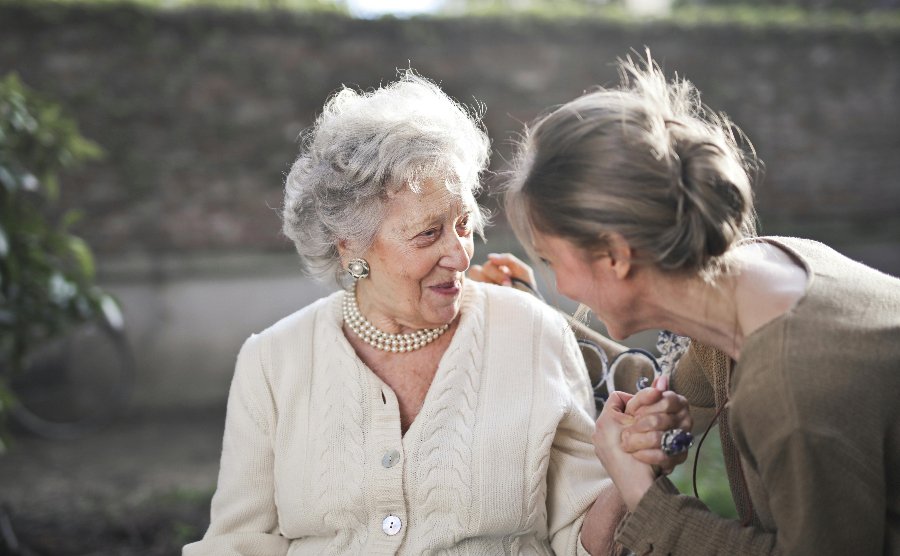Research finds a third of UK adults would feel uncomfortable wearing hearing aids in public
New research by hearing health experts eargym has found that a third of UK adults would feel uncomfortable wearing hearing aids in public.
A survey was carried out on 2,001 UK adults to understand the prevalence of hearing loss stigma and how it manifests.
When asked how they would feel about wearing hearing aids in public, a third of respondents said they would feel “apprehensive” or “embarrassed”. Just 12 per cent said they’d feel “confident” wearing hearing aids, and 17 per cent weren’t sure how they would feel.
By comparison, just 13 per cent of adults felt “apprehensive” or “embarrassed” at the prospect of wearing glasses, with 34 per cent feeling “confident” about wearing eyewear publicly.
The eargym survey has found that uncertainty surrounding wearing hearing aids worsens as we age.
According to this analysis, a fifth of 18–24-year-olds would feel “confident” or “excited” about wearing hearing aids. 39 per cent said they’d be “unaffected”, and just nine per cent felt “unsure”.
By comparison, 12 per cent of respondents aged 55+ said they’d feel “confident” or “excited” about hearing aid use, and a quarter weren’t sure how they would feel about wearing hearing aids in public.
The findings suggest adults aged 55 and above are roughly one and a half times more likely to feel uncertain about wearing hearing aids whilst out and about, compared to 18–24-year-olds.
Age-related hearing loss affects approximately 40 per cent of 55–74-year-olds. However, studies suggest the majority of adults in this age group who would benefit from wearing a hearing aid do not do so.
According to this survey, the stigma does not stop at hearing aids: people are also anxious about wearing earplugs in public despite research which suggests wearing earplugs in noisy environments can prevent hearing loss and increase the length of time at which we can be safely exposed to noise.
A quarter of respondents in eargym’s survey said they would feel “apprehensive” or “embarrassed” about wearing earplugs in public, with a further fifth admitting they weren’t sure how they’d feel. Just 12 per cent of those surveyed said they’d feel “confident” wearing earplugs, with five per cent saying they’d feel “excited” at the prospect of wearing earplugs out and about.
Studies have suggested that attitudes towards wearing earplugs can get better with regular use.
Amanda Philpott, 56, hearing health expert, hearing aid user and CEO at eargym, comments: “De-stigmatising hearing aids starts with building a better understanding of what hearing loss is, who it affects, and what we can do to prevent it. We’ve long associated hearing loss with ageing, when in fact it can affect us at all ages and life stages, and for many different reasons.
“The good news is, there’s lots we can do to slow its course. Regular hearing checks enable us to spot hearing problems early and seek help. Hearing training is also an effective way of getting more out of what we hear, by improving how our brains process sounds.
“If we’re to end hearing aid stigma, we need to normalise hearing checks and hearing aids as par for the course when it comes to our healthcare, just as eye tests and eye glasses are considered routine.
“As a hearing aid user myself, I’m passionate about the importance of destigmatising hearing aids. It’s critical if we are to help the millions of people with hearing loss reap the social and cognitive benefits of healthy hearing. Rather than viewing hearing aids as a symbol of frailty, we need to view them as a symbol of strength. For me, wearing hearing aids represents a refusal to let hearing loss rule my life.”
Around 12 million people in the UK are affected by hearing loss. It is associated with social isolation and cognitive decline; and is one of the biggest modifiable risk factors when it comes to developing dementia. Yet adults wait an average 8.9 years before seeking help.
Research suggests hearing loss costs the UK economy £25bn a year in lost productivity and unemployment.
Christian Hill, 49, paramedic and hearing aid user from Northamptonshire, comments: ““I noticed my hearing worsening in my forties (although it was many more years before I sought help). I work in healthcare, yet I still presumed I was too young for a hearing aid. Friends would ask me why I was shouting when we were at the pub. But I struggled on, determined I didn’t need help.
“Eventually, after a hearing check, I realised I needed hearing aids. They make a big difference and I wish I’d got them sooner. Hearing aids tend to turn everything up, so to get better at differentiating between specific sounds I also train my hearing regularly using a hearing training app. This has improved my focus and the clarity of what I’m hearing, particularly in noisy places.
“I would encourage others to get a hearing test as soon as they think their hearing might be changing. There’s nothing wrong with hearing aids, and to struggle on, being unable to hear, is a huge waste and can take a social and mental toll.
“I’d also encourage people to practise safe listening, and to try out hearing training as a preventative solution. It really helps.”
The company behind the study, eargym, was set up by former NHS CEO Amanda Philpott and DJ Andy Shanks in 2020, after they were both diagnosed with hearing loss. Amanda has moderate age-related hearing loss, whilst Andy has “notch” or noise-induced hearing loss due to DJ-ing. Both found hearing loss isolating and it impacted their ability to socialise and communicate. They created eargym to empower others to better understand their hearing health and take proactive steps to protect it.
My Care Consultant has announced the launch of My Care Hub, an independent ‘one-stop-shop’ for care related advice.



